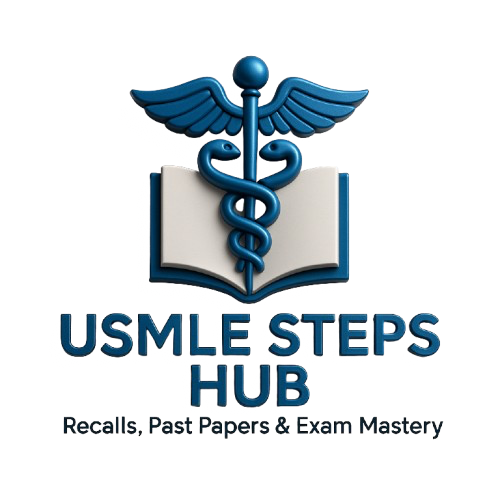Table of Contents
-
Introduction
-
Getting Started: Study Strategy
-
What to Study: Choosing the Right Materials
-
When to Study: Timing Your Preparation
-
When to Take the Exam: Score Targets & Planning
-
Step 1 Logistics & Scheduling
-
On Test Day: What to Expect
-
Adjusting Your Test Date
-
Step 1 Exam Structure
-
Accommodations for Step 1
-
M2 Year & Dedicated Study Period
-
Content Review Resources
-
QBank Strategy & Practice Tests
-
Building Endurance
-
Final Words of Encouragement
1. Introduction
Medicine and the MD program should be seen as a series of marathons. Your first major test of endurance begins with the USMLE Step 1 examination. Preparing effectively for Step 1 means having a detailed study plan and access to the best resources, like the Step 1 Premium Recalls/Past Papers Package 2024-2025. This guide is designed specifically for Emory students to map out their journey from start to test day.
2. Getting Started: Study Strategy
Start with your strengths. Trust your current methods before jumping to new ones. Feedback from faculty, alumni, and peers helps shape your individual plan. Use resources like CHSS, Dr. Hairston, and EUSOM tutors to craft and refine your approach.
Trial and error is inevitable, but guidance and the right materials, such as the Step 1 Premium Recalls/Past Papers Package 2024-2025, will ease the process.
3. What to Study: Choosing the Right Materials
Choosing resources is overwhelming. Lean on peer recommendations and workshops held by CHSS. High price tags do not guarantee high scores. Strategic combinations of affordable resources often outperform expensive all-in-one platforms.
Start with proven essentials like UWorld and enhance your review with comprehensive tools such as the Step 1 Premium Recalls/Past Papers Package 2024-2025.
4. When to Study: Timing Your Preparation
Utilize both curriculum and dedicated study periods wisely. Some resources are best used continuously through the year, while others become critical during dedicated study periods. Align your resources, like Step 1 Premium Recalls, with your available study time to stay on track.
5. When to Take the Exam: Score Targets & Planning
Plan based on your NBME practice scores. Aim for 65% or higher on at least two NBMEs. The average preparation time is 6-8 weeks, with Emory offering 10 weeks of dedicated study.
Consult the Step 1 Premium Recalls/Past Papers Package to enhance your practice exam preparation with real recall questions.
6. Step 1 Logistics & Scheduling
Start registration in September. Choose your testing window wisely—select the first month when you plan to sit the exam. You’ll need your name to match your ID exactly, complete your Certificate of Identification, and get CHSS approval.
Avoid scheduling until you have practice scores that show readiness. Test scheduling is costly to change—make sure you’re ready with tools like Step 1 Premium Recalls.
7. On Test Day: What to Expect
Prepare for an 8-hour day with 7 question blocks. Bring your scheduling permit and a valid ID. You’ll have 45 minutes of break time plus any unused block time.
Snacks, water (clear containers), and earplugs are allowed. Stick to your strategy, and avoid using study materials between sections. Instead, rely on preparation with Step 1 Premium Recalls.
8. Adjusting Your Test Date
Rescheduling your test date comes with a fee. Only push your exam if your NBME scores are consistently below target. CHSS advisors will help you evaluate.
Studying with high-yield materials like Step 1 Premium Recalls can keep your schedule on track.
9. Step 1 Exam Structure
The exam is 280 questions over 7 blocks. Use the USMLE’s content outline to map your study days to test weightings.
The Step 1 Premium Recalls/Past Papers Package breaks down question types and content categories so you can focus your review where it matters most.
10. Accommodations for Step 1
If you qualify for accommodations, start the application process in July or August. CHSS will help you gather documentation. Applications take 8+ weeks to process.
You won’t be able to register until accommodations are granted—plan wisely with support from CHSS and study tools like the Step 1 Premium Recalls.
11. M2 Year & Dedicated Study Period
Study smart during the curriculum. Use Qbanks, flashcards, and summary resources to reinforce what you’re learning in class.
The Step 1 Premium Recalls Package aligns well with course content, helping to integrate review efficiently.
12. Content Review Resources
Use a mix of free and paid tools:
-
AMBOSS
-
Boards and Beyond
-
Anki (AnKing deck)
-
Sketchy, Pathoma, and Dirty Medicine
-
Crush Step 1 Podcast
Don’t forget to leverage the Step 1 Premium Recalls for content organized by system and topic.
13. QBank Strategy & Practice Tests
UWorld is a must. Supplement with NBMEs and resources like AMBOSS Qbank. Focus on reviewing your errors.
Practice with real recall questions from the Step 1 Premium Recalls Package to simulate actual test scenarios.
14. Building Endurance
Build up slowly to full-length tests. Use Pomodoro methods, adjust your sleep schedule, and simulate test day regularly.
The Step 1 Premium Recalls package offers extensive practice material to test your stamina under exam-like conditions.
15. Final Words of Encouragement
Step 1 is one of the most demanding parts of your medical education, but also one of the most rewarding. With structure, support, and smart study tools, you can succeed.
Lean on your community, CHSS, and valuable resources like the Step 1 Premium Recalls/Past Papers Package 2024-2025to ensure you’re fully prepared. You’ve got this!

